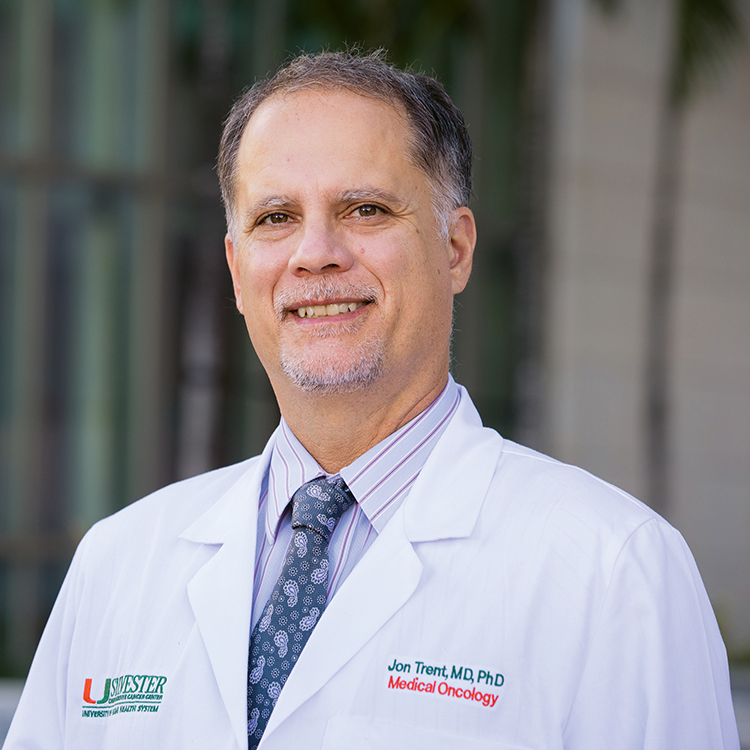Two studies by Sylvester Comprehensive Cancer Center researchers are the first to suggest that immunotherapy plays a key role in treating sarcomas, namely angiosarcoma and alveolar soft-part sarcoma.
The findings could change the treatment paradigm for sarcoma types that have few if any treatment options, according to an author on both studies Jonathan C. Trent, M.D., Ph.D., who leads Sylvester’s sarcoma team.
In a study published May 8, 2019 in The Lancet Oncology, Dr. Trent and colleagues conducted a Phase 2 trial of 33 advanced sarcoma patients, including 12 with alveolar soft-part sarcoma, treated with the immunotherapy pembrolizumab and targeted therapy axitinib.
Sylvester researchers are the first in the world to study the drug combination in alveolar soft-part sarcoma — a cancer type that has no known effective chemotherapy options, according to Dr. Trent.
“We found at three months that 25% of patients overall had substantial regression of their tumors and in another 28% of patients, their tumors quit growing. So, more than half, 53%, of patients achieved benefit from the immunotherapy combined with targeted therapy treatment,” Dr. Trent said. “Fifty-five percent of alveolar soft-part sarcoma patients had substantial reduction in their tumor size. Another 20% had stability of their tumors.”

There were no treatment-related deaths and treatment was overall well tolerated with manageable toxicity, according to the authors.
“The gold standard treatment now is this combination. It seems to be the most effective treatment out there for alveolar soft-part sarcoma,” Dr. Trent said.
In a paper published August 8, 2019 in the Journal for ImmunoTherapy in Cancer, Dr. Trent and colleagues used the combination therapy to treat another highly aggressive, rare malignancy: angiosarcoma.
They found tumors regressed in 71% of those patients, with only 29% experiencing tumor growth at three months.
“What’s important about the angiosarcoma study is these are patients that were resistant to chemotherapy, so they had exhausted all chemotherapy options,” Dr. Trent said.
Angiosarcoma starts as localized disease but is highly infiltrative, making treatment of the disease in its early stages challenging.